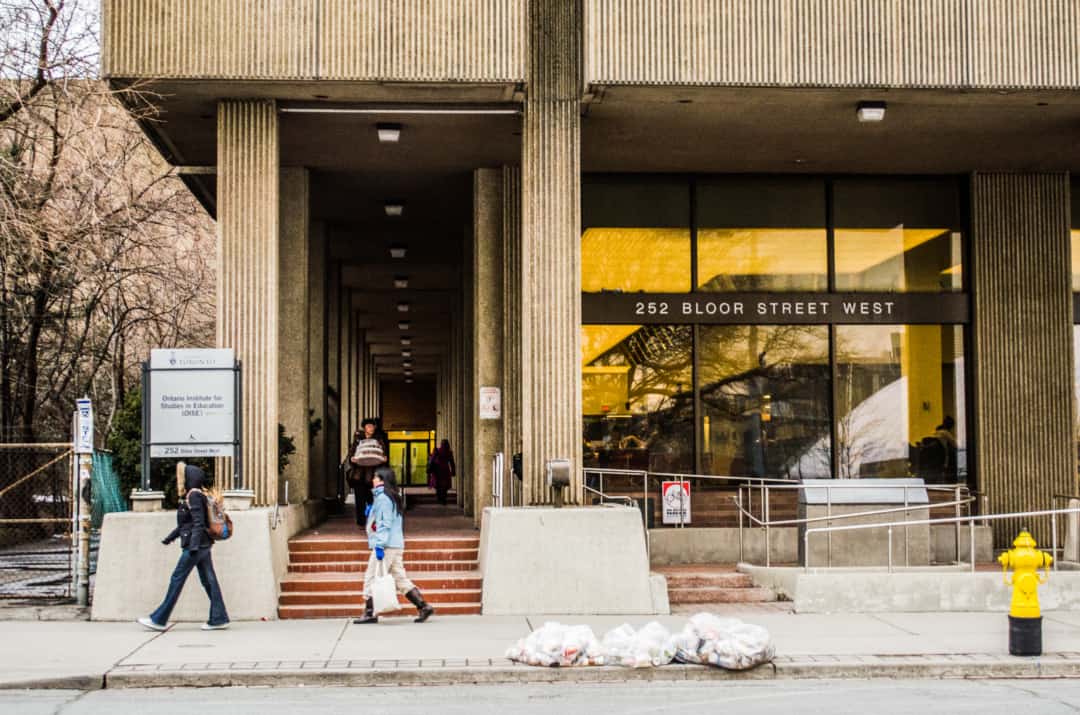A task force set up to explore ways to restructure the Bachelor of Education program at the Ontario Institute for Studies in Education (OISE) has recommended eliminating the undergraduate teacher training program altogether.
The OISE community gathered last Monday for a town hall to discuss the task force report. Although the proposal to end the Bachelor of Education degree entirely is only one of several options under consideration, the episode has prompted soul-searching about the institute and its governance structures.
“It was time for some self-reflection,” said Jeanne Watson, an assistant dean at OISE. “It was a time to think about whether 15 years post-merger [from being an independent institution to joining U of T], all the decisions made post-merger still fit us as a community.”
The proposals also come at a time of change for the teaching profession province-wide. The Ontario government has mandated that all teacher-training programs must be two years long by 2014; OISE’s current B.Ed is only one year.
The program is also swamped with applicants, in spite of a gloomy job market for teachers in the province: 3,995 applied this year, with 960 admitted.
But not all members of the OISE community agree with the task force’s recommendations. “Each of the three proposals, both in their process and content, have been subject to broad criticism,” said faculty member Terezia Zoric.
Several speakers at the town hall expressed concern over a perceived lack of collegiality within OISE’s current self-governing structure. Many took issue less with the content of the proposals and more with the decision to pursue such drastic changes in the first place — a question with an answer that remains unknown to students and faculty members. “More than 100 people showed up at town hall and there were over 25 speakers, if I was counting correctly, who were — almost to a person — saying the same thing, which is that OISE’s process for academic planning has been deeply flawed and needs to change,” said Zoric. “The proposed changes to the B.Ed program are a kind of spark, but it’s not just about the Bachelor of Education Program — it’s about academic planning at OISE,” she added.
At the town hall, faculty members circulated a document, “10 Asks for Town Hall,” a list of requests from faculty members to OISE dean Julia O’Sullivan and her associates.
“Slow down the timeline to allow for informed consent and full and fair participation in decision-making that respects the principles of collegial self-governance and academic integrity,” reads one item. “Allow time for transparent and meaningful meetings within departments, where faculty and instructors are able to participate meaningfully.”
Derek Lindman, a student in OISE’s consecutive initial teacher education program who attended the townhall meeting, also expressed concerns about OISE’s governing structure. Lindman’s concern stems from the institution’s recent decision to expand class sizes in its small Related Studies courses — OISE’s only B.Ed electives — to lecture-style classes.
“I’m concerned about how changes are going to impact future students … about whether or not students were consulted [about proposals],” says Lindman. “Instead of this great diversity of topics, and having really amazing, facilitated conversations and interactions with students, you’re going to have something much more watered down — a very different teaching style.
“I would imagine that the level of discourse and discussion would be reduced amongst peers because of the larger class sizes, interactions between students and professors would become rarer, and less significant and meaningful.”
According to Lindman, Related Studies classes traditionally give students insight into how to develop professionally in a given teaching field, training prospective teachers in such areas as anti-homophobia or anti-racism.
Despite their concerns, both Zoric and Lindman remain hopeful that the governance structure at OISE will improve. “What was proposed at townhall was that we do a reset and rethink the nature of collegial self-governance at OISE, including democratizing our own faculty council, and that’s giving some of us hope,” says Zoric.
Lindman also expressed his hopes on the issue, stating: “I am quietly optimistic that steps will be taken to close the gap between the democratic process that needs to inform this decision [and the decision itself].” Watson offers a different perspective, noting that the desires of the faculty are integrated into OISE’s decision-making processes, and that the OISE “community” did indeed play a part in forming the proposals.
The University of Toronto acknowledges a commitment to collegial governance in its Statement of Institutional Purpose.


